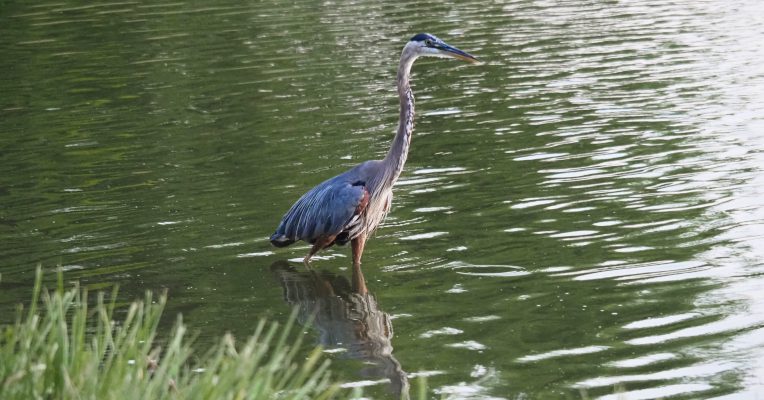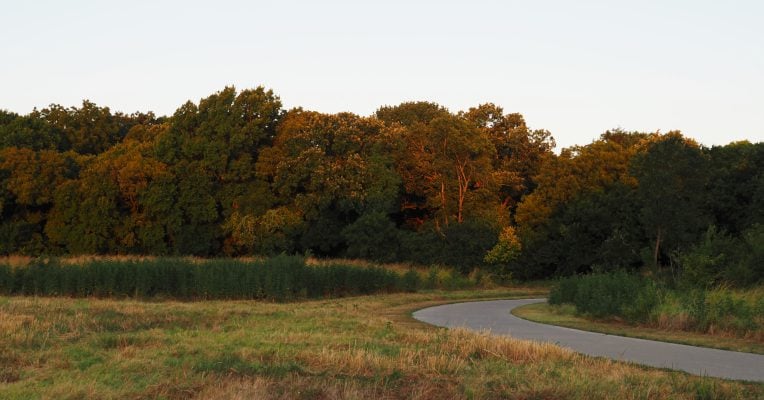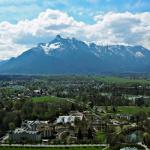Over the past few weeks I’ve seen a fair number of witches, occultists, Druids, and others say something along the lines of “I’m not Pagan.”
Unlike some of the arguments we had a few years ago, these aren’t angry statements that “I’m not like those shallow Wiccanish folks over there.” These are just people – some of whom I’d call experienced practitioners – who said “the term ‘Pagan’ doesn’t fit me.”
And that’s fine. I strongly support people’s right to choose the identities and labels that best fit them. I may think they belong in the Big Tent of Paganism, but if they don’t it’s not my place to insist they do.
On one hand, I get it. The Pagan movement is incredibly broad and it’s getting broader all the time. I sometimes say we’re in a “speciation phase” – more and more versions and varieties of Paganism are being formed, including seemingly-infinite ways to be a solitary practitioner.
The days when “pagan” (never capitalized) was a catch-all term for anyone who wasn’t a Christian, Muslim, or Jew are long gone. Those who use it to mean “an irreligious person” are doing so inaccurately and judgmentally.
Some of us did some religious studies work on this topic in the 2010s. We couldn’t define it, but we were able to describe it with the Four Centers of Paganism. I think “Pagan” is still useful as an umbrella term for those who find the Divine (however you understand the Divine) in the Many Gods, in Nature, in the Self (especially through the practice of magic), and in Community.
But that’s extremely broad. It includes – for example – traditional witches, devotional polytheists, and religious naturalists.
There was a time when many traditional witches, devotional polytheists, and religious naturalists were happy to gather together under the banner of Paganism. Some still are. But as the Pagan movement has grown, so have the opportunities for people to find exactly what they want. And as solitary practice has gone from something people did out of necessity to something people do out of choice, the need to find a least common denominator has gone down. Way down.
The right name for the right audience
If I’m traveling in Texas and someone asks me where I’m from, I’ll say McKinney – that’s where my house is. Or if I’m at a Pagan or UU event, I’ll say Denton – that’s where my UU church and CUUPS group are. If I’m outside of Texas, I’ll say I’m from Dallas. People who’ve never heard of McKinney or Denton know all about Dallas (or at least they think they do – J.R. Ewing has been dead for a long time). And if I’m traveling outside the U.S., I’ll say I’m from Texas – everyone knows Texas (for better or for worse).
Likewise, if someone at an interfaith event asks what religion I am, I’ll say I’m a Pagan. If I’m at a Pagan Pride Day, I’ll say I’m a Druid. If I’m at Mystic South or some other gathering of serious practitioners, I’ll say I’m a polytheist. I pick the term that speaks to the level of understanding and interest of the audience.
Calling yourself a Pagan is useful, even though it says nothing of any specificity or depth. But it’s a signal to ask for more information, an invitation to a conversation.
If someone tells me they’re Pagan, perhaps they mean we’re co-religionists. Maybe this is somebody who also worships some of the Many Gods. Perhaps we can discuss prayers and meditations and offerings. Maybe we can worship together.
And maybe not. Perhaps they see all Gods as aspects of one God, or as parts of our psyche. Perhaps they don’t believe in any Gods in any form. But we can still be interfaith allies and work together on environmental causes and for religious freedom.
In my experience, many people who say “I’m Pagan” mean “I’ve left Christianity but I’m not sure what I am or what I want to be.” Perhaps in time they’ll become co-religionists or interfaith allies, but my job isn’t to recruit them – Pagans don’t proselytize. My job is to help them find the path that’s right for them, whether that’s something like mine, something different but still essentially Pagan, or something completely outside the Big Tent.
The heritage of “Pagan”
In 2018 I wrote What Makes Paganism Pagan? where I explored the history of the term “Pagan.” It began as a term of derision by Roman Christians against the native Britons who kept their ancestral religions (see the Addendum, where Dr. Edward Butler makes the case that the idea that paganus means “country dweller” is not only incorrect, but maliciously so).
Later, “Pagan” became an aspiration for lovers of life who were tired of the restrictions of Christianity, but who had no way of living in an other-than-Christian society.
And then in the 20th century, people began to move from dreaming about being Pagan to actually living as Nature-loving, Gods-worshipping, magic-practicing Pagans.
Whether we call ourselves witches or occultists or polytheists or anything of the sort, these are our ancestors. Because they kept Pagan ideas and imagery alive, because they wrote hymns to Jupiter and raised turf-altars to Pan, because they pursued the study of magic when it was dangerous, we had a place to start.
I know some people – especially some devotional polytheists – who like to distance themselves from Crowley and Gardner and the like. But while I have moved on from them, I still honor the foundations they built, and I am happy to call myself a Pagan.
What I do is more important than what you call it
I wish I had a nice, succinct, historically and linguistically accurate name for the religion I practice. When pushed for a precise description, I say I’m an ancestral, devotional, ecstatic, oracular, magical, public, Pagan polytheist.
Ancestral because it’s rooted in the beliefs and practices of my ancient ancestors, and because honoring my ancestors is a foundational practice. Devotional because worship of the Gods is the center of my practice. Ecstatic because I don’t just read about Them, I experience Them first-hand. Oracular because They speak to me (and others) and Their words carry great weight in my life. Magical because my practice includes the creation of change in accordance with will. Public because it’s for everyone who’s interested, not just a chosen few. Pagan because it flows out of the modern Pagan tradition. And polytheist because of all things that differentiate the various wings of the Big Tent of Paganism, the reality of the Gods is most important to me.
I’m a writer – finding the right words is what I do. I suppose I could find – or create – a word or phrase that would encompass all that. I haven’t, in part because nothing is an obvious choice.
But mainly, I haven’t found a name for what I do because naming it isn’t very important. My identity is entwined with my religious and magical practice, but that identity flows from my actions, not from a title.
This is what I do. If you want to learn about it, I’ll be happy to describe it to you.
If you need name for it, I have many. Druid. Priest. Polytheist. Animist. Magician (I have never claimed the title of “witch,” though I’ve been tempted at times, and I may yet claim it).
Or you can just call me a Pagan.




















